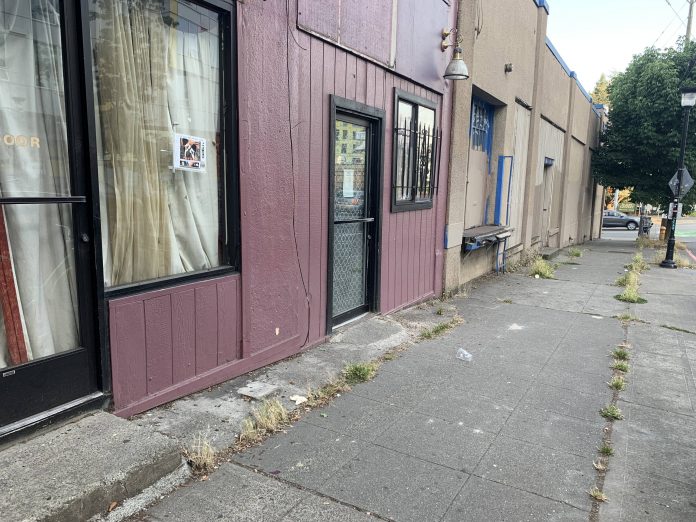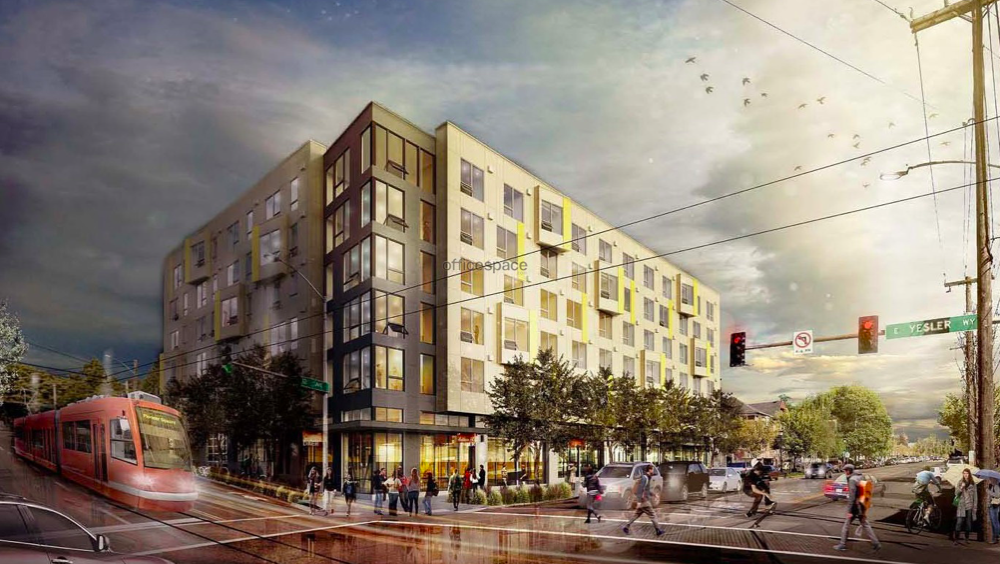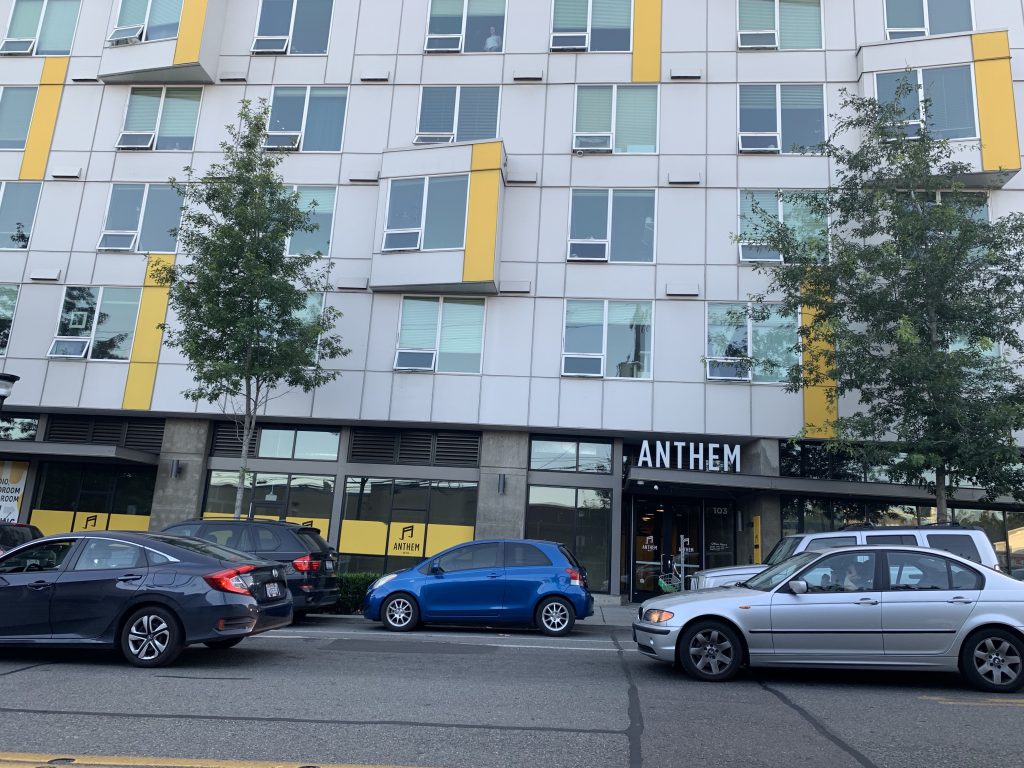
Workie Wubushet, owner of Saba Ethiopian Cuisine, knew her campaign to save the restaurant she’d owned for nearly 20 years was over when the sheriff posted the eviction notice on the restaurant’s front door. Until that moment, there was still hope that the developers who had refused to renew her lease might allow her to remain open for a few more months as she sought out a new spot to relocate to in the neighborhood.
But a hasty and expensive eviction ended that possibility. Now Wubushet wants what she, and her daughter, Saba Teklegiorgis are calling justice: relocation expenses for the restaurant paid for by developer Alchemy, as well as a formal apology for the harassment and disrespect Wubushet says she suffered during the dispute.

The City of Seattle currently provides relocation assistance to low-income tenants who are displaced by new development. Under the current law, tenants who meet income requirements are eligible for $3,998.00 in relocation expenses if the building in which they reside is being torn down or substantially renovated. Costs are split between the City and developer, with each party paying half.
But small businesses that lease their space from landlords do not have similar rights. A landlord who is seeking to sell or redevelop the property simply has to terminate the lease agreement in accordance with the law.
Lack of relocation assistance for small businesses facing displacement is something that City Councilmember Kshama Sawant is seeking to change. At a special meeting of the Human Services, Equitable Development, and Renter Rights Committee on July 29th, Sawant called for a citywide policy that would require relocation assistance for not only individual tenants, but also small businesses and nonprofits displaced by new development.
The meeting was anchored by Wubushet’s heartfelt description of the loss of her business. The public dispute between Alchemy Real Estate and Wubushet has emerged as a symbol of the displacement occurring in the Central Area and South Seattle, where more and more small businesses owned by people of color are facing displacement.
Councilmember Sawant first wrote about Saba Ethiopian Cuisine back in September of 2018 in an op-ed in the South Seattle Emerald that presented examples of individuals and businesses facing the prospect of being “demo-victed” from the city, but did not include specific solutions that addressed the problem of small business displacement–although Sawant has pushed for commercial rent control in addition to residential rent control. Since then, Sawant has promised to put a policy that require developers to relocation expenses for displacement small businesses and nonprofits before the Council.
Noting that when government agencies acquire properties they are required to pay relocation expenses to all displaced tenants, Sawant has questioned why for profit developers have been “absolved” from similar financial obligations.
If Seattle were to adopt such a relocation policy, it would be the first of its kind, putting the City into uncharted territory in regards to commercial leases and landlord/tenant rights; however, relocation assistance might be just one of several tools the City could use to prevent displacement of small businesses.
Mixed-use developments can produce mixed results for walkability
Just a stone’s throw from the new Yesler Terrance, 12th Avenue near Yesler is quickly transforming from a quiet strip of small residential and commercial properties into a hub for new market rate mixed use developments.
Ms. Wubushet first learned of plans to transform the property into a 6 story, 300 unit mixed use development after a notice was posted on the building where she leased space for her restaurant. “Seeing the development notice felt like a death sentence for the restaurant,” said Teklegiorgis at the special meeting.
An irony that not lost on Wubushet during a stressful search for a new location for her restaurant was that a storefront sat empty in the new apartment building just across the street. So close, yet also out of reach.

Since being completed in 2015, the commercial space at the base of Anthem on 12th has sat vacant. Although, there is no sign of a business moving in anytime soon, the space is not currently on the market.
Storefront vacancies at the base of mixed-use developments are not just a phenomena in Seattle. Across the United States, a pattern of mixed-use commercial vacancies has emerged. In the Strong Town’s article, “What’s Up With All Those Empty Commercial Storefronts in New Mixed-Use Developments,” writer Rachel Quednau describes how well-intentioned urbanist policies requiring commercial space on the ground level of mixed-use developments can end up becoming counterproductive. Rather than increasing walkability, if executed poorly, a neighborhood may “end up with streets pockmarked by vacancies while small business owners who need commercial space can’t afford it.”

This is because these new storefronts tend to remain vacant because they are simply too large–and too expensive–for local small businesses to utilize.
Rather than mandate inclusion of commercial space at the ground floor of new developments, Quednau advocates for the creation of small scale, incremental development that preserves affordability for small businesses. However, in most instances, this recommendation places responsibility on private developers, rather than cities.
What commercial affordability strategies has Seattle explored?
Back in 2016 Mayor Ed Murray convened a commercial affordability advisory committee which issued a report focused suggested solutions for preserving affordable spaces for small businesses in Seattle. Highlights from the report recommendations included:
Commercial Affordability Tax Abatement: Basically this would be a commercial equivalent to the Multi-Family Tax Exemption (MFTE) program, which would provide property tax exemption for a specified number of years to property owners who rent to qualifying small businesses at lower rates. Enacting such a policy would require legislation from the State.
Incremental Property Tax Adjustments: Advocate that King County tie property tax assessment to a property owner’s building income rather than the general market value of the surrounding neighborhood where the property is located. This would provide an incentive for property owners to maintain rents at affordable levels.
Underutilized Public Property: Where appropriate prioritize the long-term lease or sale of underutilized public property for small business use.
Integrate Commercial Affordability: Include priorities for affordable commercial space in the affordable housing funding process that do not reduce residential unit development goals.
Commercial Affordability Fund: Designate funds for low-cost financing for small businesses and small-scale property owners.
Small-Scale Commercial Pockets: Change zoning in residential areas to promote small business spaces, especially where prior commercial use existed.
Design Guidelines: Strength design guidelines in urban villages and commercial areas to encourage development of small storefronts and commercial spaces.
Small Business Marketplace Exchange: Create a technical assistance exchange that provides an online directory of tenants, brokers, building owners, business chambers and others to increase communication around commercial affordability projects.

While these suggestions have not yet been implemented, current Mayor Durkan could dust them off and revisit which policies could make the greatest gains for increasing affordability. This work could be completed in addition to an extension of the Small Business Stabilization Pilot, which is currently operating as a one time pilot. During 2019, eligible small businesses may apply for grants of up to $25,000 to help cover day-to-day operating expenses due to destabilizing events and receive coaching from Office of Economic Development Small Business Advocates. Funding for this program has been prioritized for small businesses in neighborhoods classified as at high risk of displacement by the City.
Of course, extending the pilot, and enacting some of the recommendations listed above, requires funds. One idea the City of Seattle could pursue to raise funds is a tax on vacant storefronts. San Francisco has passed an ordinance that requires property owners to register and pay annual registration fees on vacant storefronts. The ordinance also requires owners to complete annual inspections of registered vacant or abandoned storefronts to ensure they remain up to code for future tenant use.
Natalie Bicknell Argerious (she/her) is a reporter and podcast host at The Urbanist. She previously served as managing editor. A passionate urban explorer since childhood, she loves learning how to make cities more inclusive, vibrant, and environmentally resilient. You can often find her wandering around Seattle's Central District and Capitol Hill with her dogs and cat. Email her at natalie [at] theurbanist [dot] org.


